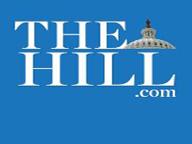Faculty News
—
Professor Scott Galloway shares his perspective on how the coronavirus pandemic has boosted already dominant media platforms such as Facebook
—

Excerpt from NY Mag -- "One company that came up repeatedly during the show was TikTok. Swisher and Galloway spoke with Vanessa Pappas, TikTok’s general manager, about the Chinese company’s tumultuous week, during which President Trump threatened to ban it, then endorsed Microsoft snapping it up — and the intense scrutiny the company now receiving from all sides."
Faculty News
—

Excerpt from NY Mag -- "One company that came up repeatedly during the show was TikTok. Swisher and Galloway spoke with Vanessa Pappas, TikTok’s general manager, about the Chinese company’s tumultuous week, during which President Trump threatened to ban it, then endorsed Microsoft snapping it up — and the intense scrutiny the company now receiving from all sides."



















